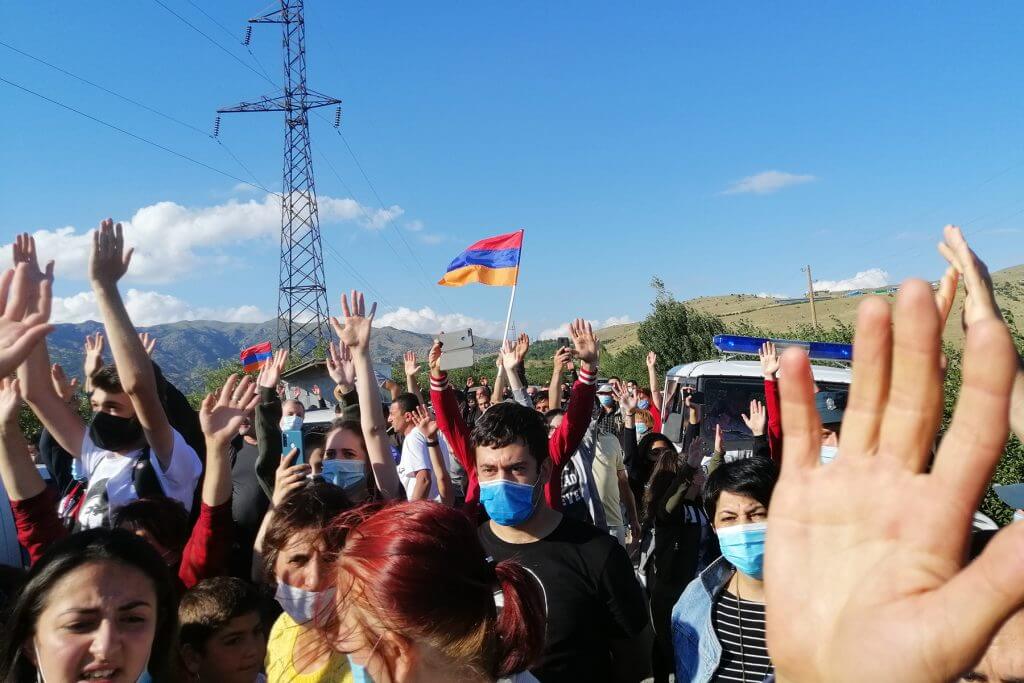In August, violent clashes broke out between local residents, activists, police, and officials from a gold mining company in the Vayots Dzor province near Jermuk, a city in eastern Armenia. The mine operating company, Lydian Armenia, tried to raze cabins set up in 2018 by activists, who have been protesting the mine for the past two years to make way for new cabins for security guards. These renewed conflicts have highlighted the public’s frustration over the Armenian administration’s continued indecisiveness regarding the future of the controversial project.
Several locals have long-opposed the construction of the mine, with concerns for public health and the fear of damage to the area’s water resources, especially in the tourist hub Jermuk, which is known for its mineral water and hot springs. Over the past few months, protestors have faced off against Lydian Armenia’s private security guards. In early July, there were several incidents around the mine and protests linked to it carried on to the country’s capital Yerevan, escalating further to the beginning of August.
The gold mine contract, signed between the British subsidiary and the previous Armenian government which was ousted in 2018 by Prime Minister Nikol Pashinyan, has been an extremely sensitive issue for the new administration to navigate. Lydian had begun its exploration in the area in 2006, and established the Amulsar Gold Project after submitting environment and social impact assessments (ESIA) to the previous Armenian government. In 2015, the company began construction with plans to open the facility for full operation by 2018. In an attempt to resolve the issue, Pashinyan promised that his administration’s the Investigative Committee would reassess the ESIA submitted by Lydian to check whether the Amulsar project is in compliance with the country’s environmental protection laws. Following this, the Prime Minister approved the project, perhaps under pressure from Western diplomats, whose embassies and investors continue to insist that the mine will provide thriving employment opportunities for the people of the region. Soon after, however, he rescinded the decision following public backlash, stating that the administration would be studying the issue further. The locals have perceived this as the government’s inability to make challenging decisions.
Simultaneously, experts from an international independent consultancy group examined the project and concluded that it had the potential to carry detrimental environmental and health risks, including the risk of chemicals impacting the quality of downstream water, and its surrounding natural wildlife and agriculture. The Lebanese audit firm ELARD said that the ESIA submitted by Lydian was deficient in data and lacked a proper assessment of the project’s impact on water.
Activists have been demanding that Pashinyan cancel the project, and, in their most recent clashes, complained that Lydian’s security guards had behaved inappropriately. “They are armed, provoking people, swearing at them,” activist Themnine Yenokyan told RFE/RL. The violence only ended once the mayor of Jermuk intervened at the mine.
Armenian Protestors Clash with Private Security Guards at Controversial Gold Mine
PM Nikol Pashinyan’s government has been unable to resolve the Amulsar project issue
August 17, 2020

SOURCE: OC MEDIA
